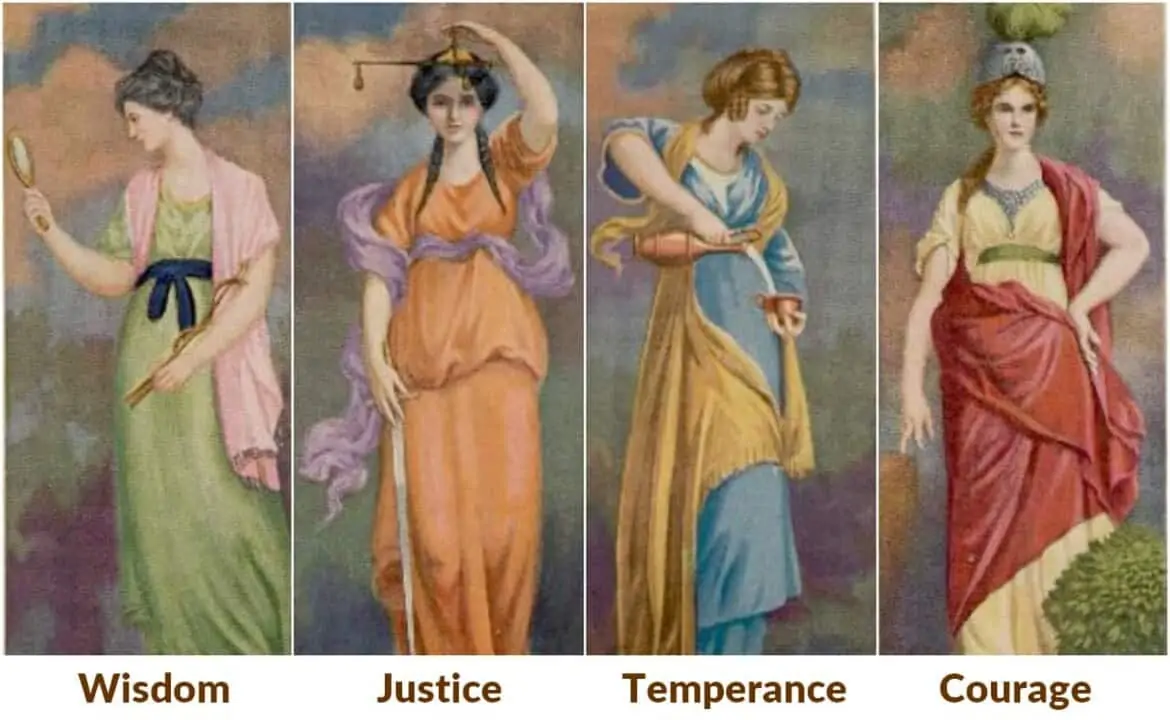Today's Wednesday • 7 mins read
Stoicism was a school of Hellenistic philosophy founded in Athens by Zeno of Citium in the early 3rd century BCE. It flourished and built a major following in Greece and later in Rome. At least three Roman emperors—Augustus, Hadrian, and Marcus Aurelius—were influenced by its teachings.
The doom of ancient schools of Stoicism came with Justinian I, the Byzantine emperor. Justinian decided the pagan character of every philosophical school of that time was at odds with Christianity, so he ordered the closing of all in 529 CE.
But Stoicism remains popular and relevant even today. Its main tenets are so practical and universal that any modern person can follow them without changing their religious stand.
Stoic philosophy was built upon two main pillars:
- Dichotomy of Control
- The Stoic Virtue

Dichotomy of Control
The dichotomy of control is a philosophical idea that defines the limits of one’s control over events. It is recognized as one of the two main pillars of Stoicism and defines the border between what is in our power and what is not.
The Dichotomy of Control is the human ability to categorize any act, thought, behavior, or situation into one of two divisions: one, what can be controlled, and two, what cannot. Stoics teach that we should only focus on what is under our control, and leave the rest to destiny.
The dichotomy of control is based on the concept that people cannot change what has happened in the past or predict the future accurately. What they can control are their thoughts and actions.
The Stoics believed that external events were beyond human control, but people could always choose how to react to them; they should be indifferent to what happens around them, but still care about others and their feelings.
The principle of Dichotomy of Control simply means we divide things as controllable or uncontrollable. Epictetus explains the idea beautifully:
Some things are within our power, while others are not. Within our power are opinion, motivation, desire, aversion, and in a word, whatever is of our own doing; not within our power are our body, our property, reputation, office, and, in a word, whatever is not of our own doing… If you regard that only that which is your own as being your own (as is indeed the case), no one will ever be able to coerce you, no one will hinder you, you’ll find fault with no one, you’ll accuse no one, you’ll do nothing whatever against your will, you’ll have no enemy, and no one will ever harm you because no harm can affect you.
— Epictetus, Enchiridion, 1.1
Dichotomy of Control In Relationships
The dichotomy of control can be applied to various aspects of life, mainly our relationships.
The Stoics believe one must maintain a sense of detachment from one’s emotions in order to work for a better and more loving relationship. Since external events are beyond human control, and people could always choose how to react to them, they should be indifferent to what happens around them while caring about others and their feelings and behaviors toward them.
Dichotomy of Control And Ownership
We don’t have ownership of everything that happens to us. So we shouldn’t try to control everything that happens around us.
We could interpret it in modern terms as dividing everything we try to do into two components: the part that is entirely up to us — opinion, motivation, desire, aversion, and one that is not up to us, although it can be influenced by us — our body, our property, reputation, office.
A related question is of how we value the things we divide according to the Dichotomy of Control. The things we cannot control can be good, and in this case, these are “preferred indifferent.” Things we can control can also be bad, and in this case, they are “dispreferred indifferent.”
The preferred indifferents include life, health, pleasure, beauty, strength, wealth, good reputation, and noble birth. The dispreferred indifferents include death, disease, pain, ugliness, weakness, poverty, low repute, and ignoble birth. While it is usually appropriate to avoid the dispreferred indifferents, in unusual circumstances it may be virtuous to select them rather than avoid them. The virtue or vice of the agent is thus determined not by the possession of an indifferent, but rather by how it is used or selected. It is the virtuous use of indifferents that makes a life happy, the vicious use that makes it unhappy.
— William O. Stephens, Internet Encyclopedia of Philosophy
For example, things within our control: thoughts, like judgments and desires, and actions, like impulses and reactions.
And the things that lie outside of our control: everything else, like the body, the material stuff, other people’s opinions. Epictetus, the slave-to-sage teacher, called these “externals.”
The chief task in life is simply this: to identify and separate matters so that I can say clearly to myself which are externals not under my control, and which have to do with the choices I actually control.
— Epictetus
According to the Stoics, we should not give in to fretful emotions when we face things we cannot control, because most of the time, there is nothing we can do to make them better. It is better to accept them as they are and move on.
In fact, the principle of ‘dichotomy of control’ became the basis of The Serenity Prayer, a prayer written by the American theologian Reinhold Niebuhr in 1932-33. It was later adopted by the twelve-step program of Alcoholics Anonymous.

Stoic Virtue
The second pillar of Stoicism is held up by Virtue. The Stoics completely accept the idea that virtue is the only good for living as humankind. In fact, they guide their whole lives by that principle.
The ancient Greeks defined virtue as follows:
Aretê (Virtue):— the state of a mortal creature which is in itself praiseworthy;
— the state on account of which its possessor is said to be good;
— the just observance of the laws;
— the disposition on account of which he who is so disposed is said to be perfectly excellent.
The Stoics believe having goodness and doing good for its own sake is the highest function of human life.
To the philosophical mind of the Stoics, a life that is lived with virtue is the best form of human life. Stoicism holds the only thing to bring about our ultimate happiness is a life of virtue.
The Stoics get the credit as the first philosophers to divide philosophy into three parts: logic, physics, and ethics. Logic deals with the expression of knowledge. Physics deals with the matter and principles of knowledge.
And ethics with the use of that wisdom. For them, philosophy was ‘the knowledge of things divine and human.’
The first Stoics carried forward the Socratic idea that virtue was knowledge. Further, they borrowed from Plato, a pupil of Socrates, the four cardinal virtues of Wisdom, Justice, Temperance, and Courage, and defined them as the four branches of knowledge.
Against these virtues stood the four cardinal vices of Folly, Injustice, Intemperance, and Cowardice.

Find out more about the Four Cardinal Virtues of Stoicism here.
Final Words
How could we flourish under these two pillars today? Massimo Pigliucci, Professor of Philosophy at the City College of New York, author of How to Be a Stoic: Ancient Wisdom for Modern Living, explains it:
Apply the dichotomy of control and the four virtues to everything you do and, as Epictetus promises, you will never be unhappy. You will be free, and you will live a life truly worth living.
— Massimo Pigliucci, aeon
The way Zeno came around to founding Stoicism is a highly interesting story! You must read it.
• • •
Author Bio: Written and reviewed by Sandip Roy—a medical doctor, psychology writer, and happiness researcher. Founder and Chief Editor of The Happiness Blog. Writes on mental health, happiness, positive psychology, and philosophy (especially Stoicism).
√ If you enjoyed this, please share it on Facebook or Twitter or LinkedIn.